#cs analysis
Explore tagged Tumblr posts
Text




Liam crashes the Versace catwalk in 1996 + "Love is a Rich Man" (2023)
#love is a rich man#nghfb#1996#2023#i have no idea who if anyone actually did inspire 'love is a rich man'#but i was looking at the lyrics the other day and this idea wouldn't leave me alone until i giffed it so here we are#lyric analysis#even though it's stupid#things#cs album
37 notes
·
View notes
Text
i was making a CS Analysis about Carmen and Narcissistic traits and it's too good for me to keep to myself. SO I'M GONNA DUMP IT ALL HERE ft. my private cs-blank-au discord server nickname





#carmen sandiego#carmen sandiego analysis#narcissism#altruistic narcissism#carmen sandiego 2019#carmen sandiego netflix#carmen sandeigo 2019#cs-blank-au
81 notes
·
View notes
Note
The new arc’s first blurb came, and seems to be about Tawnypelt, Leafstar, and some random apprentice molly named Moonpaw btw. Can’t wait to see how awful that turns out.
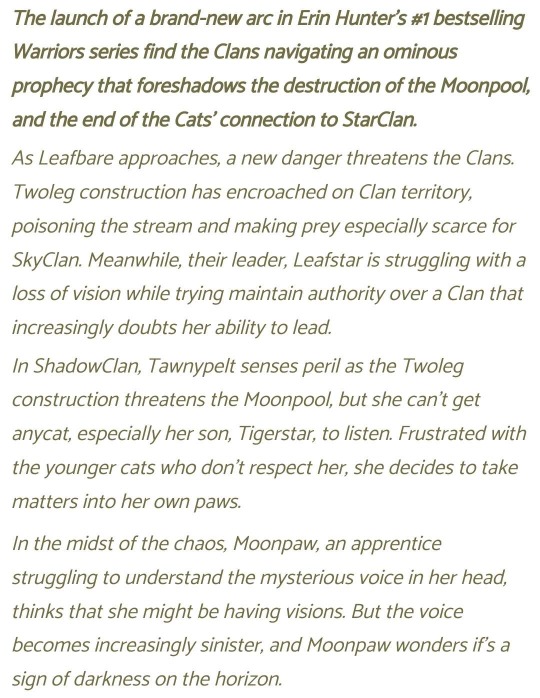
I'm going to go in with low expectations this time around. Admittedly, I'm not fond of the idea of following cats who I feel have massively overstayed their welcome. Leafstar should have been dead a long time ago, and Tawnypelt has been active for 20 years of arcs plus a novella.
When I say "I'd like characters from previous arcs to continue their stories" I don't mean that I want popular old cats to get forced into the spotlight constantly. I mean that I want interesting background characters like Icewing, Fringewhisker, or Breezepelt to get expanded upon with full POVs. It's a bummer that the Erins seem so bad at building up new characters that they're still relying on cats from Arc 1.
But, hey, maybe this will surprise me.
Moonpaw though... Moonpaw I've got my eye on. I'm listening. I'm paying attention. TBC and ASC had a "formula" for the three POV characters; Boy/Girl/The Horrors. It's not lost on me that Changing Skies seems to have dropped the Boy and the Girl, but kept The Horrors. I hope this signals that they listened to the positive feedback on Shadowsight and Frostpaw.
Other assorted thoughts;
I'm not even going to pretend to be kind to this; ANOTHER construction plot is just bad.
They're boring. I do not want another whingefest about how it's wrong and bad and mean to hurt humans for some reason.
Bone "Speckletail's Bulldozer" Fall: these darn cats better attack a bulldozer or I'm out
And goddddd why are we having ANOTHER "StarClan's really gonna be gone this time!" Plot. This is the third in a row.
I was already on board with it the first time. Burn the heavens down or shut up at this point.
Plus... it seems like a lot of this arc is going to be based around Tawnypelt trying to argue with people to get the plot to happen, Moonpaw warning everyone the plot is going to happen while they don't listen to her, and Leafstar acting in whatever way will be most annoying for the plot to not happen.
I cannot stress enough how much I dread this. I am so sick of buying books to hear about characters doing everything in their power to accomplish as little as possible. I can call my congressman for FREE.
Moonpaw though. I love her name. I hope that she has a strong personality to help her stand out from Frost and Shadow.
I'm hoping that she's more on the rough side than the sensitive side, tbh. Something I enjoy about Nightheart is that he CAUSES shit to happen because he's impulsive.
My ideal scenario for this arc is Leafstar trying to keep Tawnypelt and Moonpaw on two leashes and absolutely failing. PLEASE let my girls break stuff.
I hope that Leafstar dies in this arc. I'll be kinda sad if she's the first leader voted out, but she NEEDS to stop leading. So I hope it's a good death.
And God please I hope they keep the stupidity pills away from her. She has been at her worst in ASC.
IN A NUTSHELL; On paper, this seems like a middling idea for an arc at best. My expectations are low, but I'm hoping they surprise me.
133 notes
·
View notes
Text
Redcrackle ship analysis pt.2
I just wanted to talk about the clear soft spot they have for each other
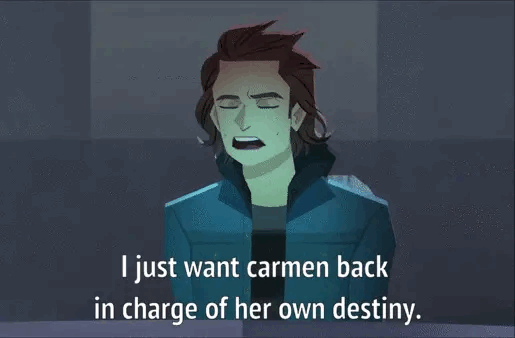
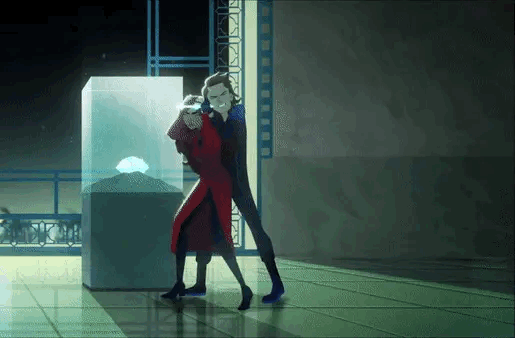
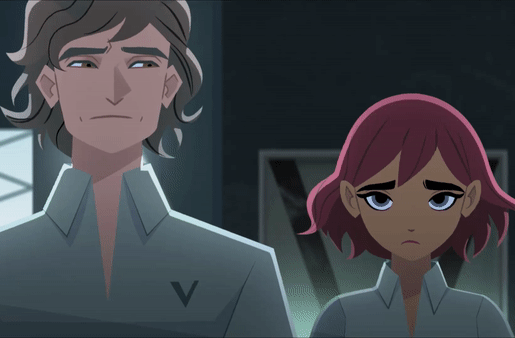

He wouldn’t have done those things for anyone else
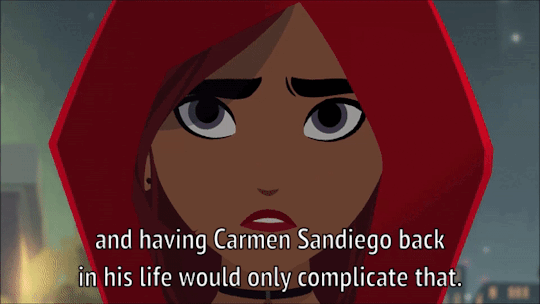
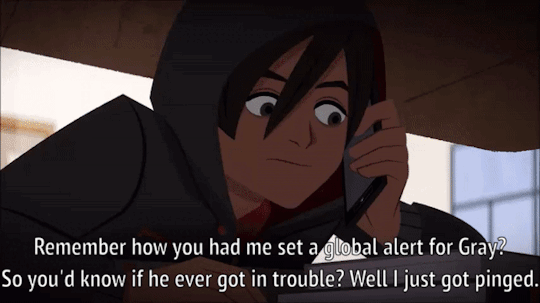
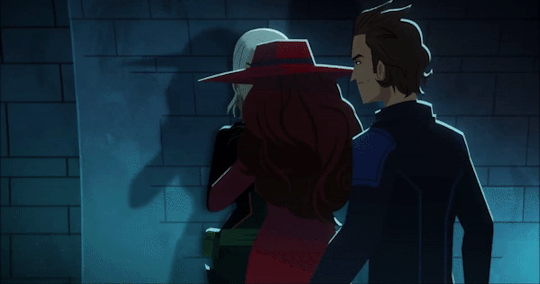
The way both of them had a soft spot for each other, I every single one of their versions (black sheep, carmen Sandiego, evil carmen and Gray, Graham and crackle) it’s insane to me.
Black sheep was a rebellious spirit. She wouldn’t listen to anyone, and yet she still listened to Gray, she trusted him.
Carmen Sandiego was a grown woman, who was not afraid of beating some VILE operatives and yet she always had hope on Gray, she always knew he was good deep down, she always protected him, cared for him and she was always on his side as long as possible.
Evil carmen wouldn’t even listen to the faculty, but yet, she listened to Gray when he said to let Tigress go, and I assume many other times since we saw only a little part of the 6 months she was brainwashed.
Gray had some friends, yeah, but no one was like carmen, their bond was special and he never cared of who he had to go against to protect carmen, either it was Tigress, the faculty or whatever.
Graham (brainwashed gray) barely knew carmen and even since their first interaction he was so clearly in love with her, he asked her out on a date and even though she didn’t show up he was willing to go all way to New Zealand just to have a coffee with her. He was willing to help her with “criminal” things even though he was good now.
Crackle worked very good with evil carm and when he realised that she was not the real carmen and that she wanted to kill shadowsan, he got himself arrested so that she could “come back”, and he made himself shock and pass out just so that she could make her own decisions, not the one that were forced to her.
And the way they always put each other well-being and happiness before their own, letting each other go even though they didn’t wanted to do it.
#carmen sandeigo 2019#carmen sandiego netflix#ship analysis#carmen sandiego#carmen sandiego 2019#graham calloway#carmen x graham#graham x carmen#gray x carmen#gray cs#gray calloway#graham crackle#carmen x gray#redcrackle#red crackle#red crackle thoughts
256 notes
·
View notes
Text
Excerpts about JRR Tolkien from the Diaries of Warren Lewis, elder brother of C. S. Lewis
(hbd tolkien!) None of that in the reddit link is my work. I merely discovered the link dated 7 years ago, and I beseech you, if you have yet to, this deserves a read.
https://www.reddit.com/r/tolkienfans/comments/7m3eb6/excerpts_about_jrr_tolkien_from_the_diaries_of/
J as Jack, C. S. Lewis; Tollers as Tolkien and the rest is pretty self-explanatory as the entries evolve.
/ (my thoughts ↡) /
because oh lord this has had me inquisitive and prying at the beginning, laughing out loud in the middle nodding in vehement agreement as the Inklings go through the Hobbit and the Rings. (Referring to Sam as Frodo's squire is now truly my favourite of Sam's titles). But there are tears at the end.
Tolkien takes off his hat to a deer on a walk and says "hail fallow well met; JRR goes from Tolkien to Ronald to Tollers, and Warren, with his brother, expresses their hidden indignation at new people inviting themselves into the Inklings (just as we all do in modern society). Warren then proclaims his love for the Sam-Frodo-Gollum passages of LotR, the anticipation of Tollers' LotR public reception and how he likes "the dwarf Gimli" and Sam Gamgee the most.
Then comes the souring of C. S. Lewis and Tolkien's friendship; J passes, they all age, and one day there's this passing remark on Tolkien's book sales to which his introspection admits, "I felt a swift and unworthy pang of envy that his success should have so far exceeded anything that ever came J’s way"—regrettably I do agree, in their legacies books on faith are seldom as marketed in today's economy.
It feels so surreal, reading his entries as time evolves and shapes; the asides of Tolkien in his diaries even as circumstance eventually drifts bonds apart: Tolkien yet remaining "Tollers". Last entry. Mrs Tolkien passes in November 1971, and he mentions Tollers once more: through his daughter to his address though, since fame and distance has made his abode unknown to the Lewises once more. Regardless, great warmth and care lingers, in their thoughts.
C. S. Lewis passed in 1963. Warren Lewis passed in April, 1973. Tolkien shortly after, in September of the same year.
#lotr#tolkien#jrr tolkien#friendship#cs lewis#jrrt#lord of the rings#life#relationships#fate creates#fate's analysis
21 notes
·
View notes
Text
ouat writers really could not have been more serious about the crystal used in robin's sacrifice. they made it very clear that the victim will be dead. gone. obliterated. forever.
meanwhile killian defies all odds, walks out of hell, meets the god of all gods who is a certified captain swan shipmate™️, and is home in time for the post funeral pot luck at granny's.
#robinhood deserved better#so much wasted potential#thatmademewant#ouat#once upon a time#onceuponatime#ouat analysis#killian jones#robinhood ouat#captain swan#outlaw queen#cs season 5 supremacy#the plot of this episode was a sprint not a marathon and for wHAT
273 notes
·
View notes
Text
Rage aspect and meta. Pre and post retcon. Homestuck au inspired by csau. Past Gamzee/Terezi. Gamzee makara recovery/dealing with the consequences of his actions. Post-sburb gamtav.
[The texts in this post are mostly my own messages copied and pasted from HS Discord. It's recommended that to better understand this rant you read my other posts about Gamzee and these concepts, not necessarily mandatory.]

Ok so listen yall im thinkin about the rage aspect and post-sburb au
My understanding of Rage and Hope is that one is more connected to reality, and the other to fantasy. In Rage's case, it's everything that's true and exists as it is, while Hope is all the infinite possibilities of what can be. So I figured maybe a rage player could gain some sort of insight/understanding into the reality of the story and their place in it.
That's why Gamzee can do what he does, he's passively destroying reality/the story.
SO
Rememeber how Terezi recovered the memories of her past self (before retcon) due to her mind+seer powers and emotional turmoil
I'm writing an au where that also happens with Gamzee in the retcon, maybe after they defeat LE and destroy Cal (<- VERY important for that to happen), due to the sudden freedom granted to his mind Gamzee suffers some kind of emotional and mental shock, similar to what happened with his chucklevoodo (unconsciously giving John nightmares etc etc)
And I'm not even sure if this happens to Gamzee in canon, but here he gains some understanding of the meta and manages to regain his memories from before the retcon
And then comes the emotional spill and meltdown blah blah blah his reality is shattered and he's miserable etc etc
THEN
This contains OCs and I'm not gonna go into too much detail but they're the ones who are mainly in charge of getting Gamzee through the door
TIME SKIP
FOUR YEARS LATER
Gamzee received professional help and support in addition to getting used to this new life outside of anyone's or anything's control, but he also has to deal with the consequences of his actions
WHICH LEADS US TO Gamzee meeting and having a conversation with Terezi (also Nepeta, Karkat, Equius and Tavros etc BUT MAINLY TEREZI FOR NOW) and both of them talking about their relationship and what happened before the retcon, since it's only them + john + time players + sprites who know
I forgot to talk about this on discord but it is in this conversation that both manage to reconcile and receive the answers/apologies they deserved IMPORTANT THAT THIS HAPPENS 4 YEARS LATER OR MORE AFTER THE GAME both need time to heal and improve at their own pace

We continue with the discord messages
OOOOOOH I THOUGHT OF SOMETHING
similar to the scene with Lapis Lazuli, Gamzee is with a group going about their normal day and things take an unexpected turn and now Gamzee is having a breakdown, he's questioning if what he's doing is okay, questioning if he can really be a better person, and ADMITTING that sometimes he "misses" what he went through in the game, AND IT'S CRAZY BECAUSE NOTHING GOOD HAPPENED TO HIM, and he's like (I don't know how to replicate gamzee's speech, I apologize) "i know it sounds bad but sometimes i think i miss the purpose LE gave me" and someone (I didn't put any specific character but I imagined this scene happening with Tavros, I'll explain more later) retorts with "but he was evil and he made you suffer!" and gamzee retorts with "IM EVIL, I MADE MY FRIENDS SUFFER, I TORMENTED KARKAT AND TEREZI AND I KILLED EQUIUS AND NEPETA AND A LOT OF OTHER BAD THINGS" and maybe he mentions something he did before the retcon and everyone's like "what when did that happen" and gamzee gets worse because he remembers that only a few people know the damage he really caused
Okay, as I said, I was going to talk more about Tavros. In my AU, I plan to make flushed Gamtav canon, but like with Terezi, for that to happen, I need a time period where the characters involved can heal separately, so the development of their relationship would not begin until almost 4 years after the game. And just like in csau Tavros gains the confidence (and wings) that he previously lacked/wanted, and the dynamic between Gamzee and Tavros changes.
Tavros becomes more confident and assertive about the type of relationship he wants to form with Gamzee (<3), while Gamzee is now the one who doesn't know if he wants to pursue that (because he doesn't trust himself and that he's not going to ruin everything again). They first begin by forming a friendship; both are different people and must learn to love this new version of themselves. But as time passes, it's clear that Gamzee isn't talking about some things that bother him and prevent him from expanding his friendships/relationships (idk maybe they should mention the makeout with his decapitated head, maybe who knows). This would lead to the scene described above.

Original messages:
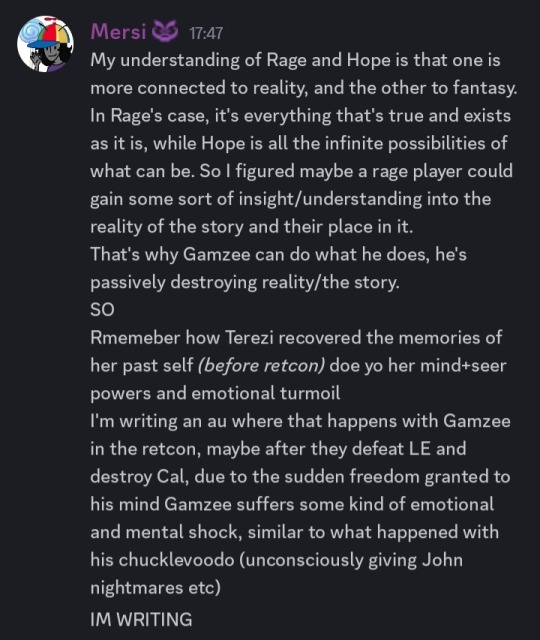
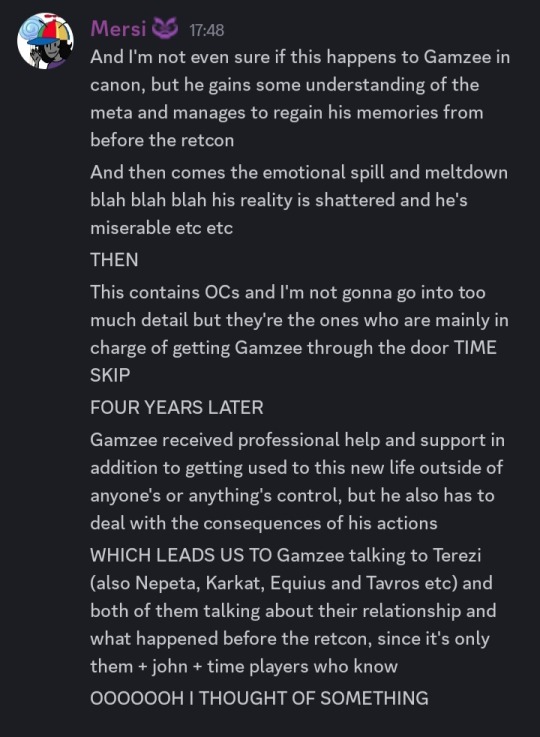
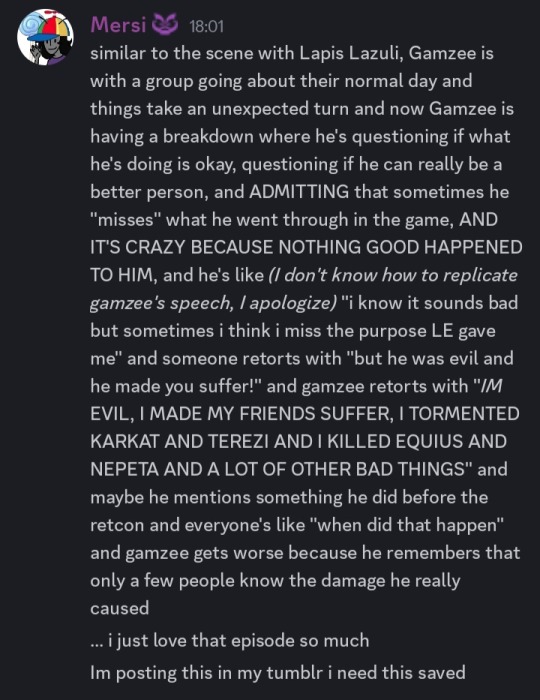
Dividers made by enchanthings-a on Tumblr
#original post#gamzee makara#gamzee makara analysis#character exploration#homestuck#cs au#post sburb#homestuck au#my au#gamtav#pb&j duo#rodeo clown#gamzee homestuck#terezi pyrope#terezi homestuck#tavros nitram#tavros homestuck#character growth#dealing with trauma#rage aspect#gamzee makara recovery#dealing with the consequences of one's actions#cs au inspired#character analysis#fuck the homestuck epilogues and beyonde canon#discord messages
12 notes
·
View notes
Text
I was going to make a whole big analysis post about it but fuck it.
Does anyone else find it odd that the White Death is supposedly just the Dark King’s method of securing an army, but the Lady also uses it to return Visander? And while the army might belong to the Dark King, he didn’t use that method to restore himself or James, even though it would ensure he kept his memories and would make his return much quicker? I would say he needed to be Reborn to keep his power, except Visander is as formidable a warrior in Katherine’s body as he was in his own, so.
Idk something about the Lady’s familiarity with the concept of Returning, combined with the coincidence that the Sun King built his palace over a prison pit perfect for restoring an army, tells me that the Lady and Sarcean might have worked on the White Death together, possibly on the Sun King’s commission.
Furthermore, we know that everyone is still using the Dark King’s magic (the cup, the brand—hell, James connects to Will’s magic to amplify his own). The Sun King surrounded himself with the magically gifted. I wouldn’t be surprised if the Sun King was using Sarcean as his own magical wellspring, striking him down when he realized that Sarcean had the capabilities to overthrow his power.
I really like the idea of the White Death as a weapon that “belonged” to the Sun King because they created it on his order, bastardized by Sarcean in reaction. What if he wasn’t building an army with the White Death, but repurposing a plan already set in motion?
#dark heir#dark heir spoilers#james st clair#will kempen#cs pacat#analysis#listen I know something is up with the Sun King#cs pacat loves to overturn expectations#I still think Sarcean is morally grey at best#dark rise
88 notes
·
View notes
Text
"When I became a man I put away childish things, including the fear of childishness and the desire to be very grown up." - Embracing your childhood in the 'The Chronicles of Narnia: The Lion, the Witch and The Wardrobe'
CS Lewis dedicated the first book in his beloved Chronicles of Narnia series to his goddaughter Lucy with the foresight that, "some day you will be old enough to read fairy tales again." He understood that, although she was growing too old for "childish things" now, some day she would look back on them again with a new appreciation and an old fondness. Although we all go through this process of leaving our childhoods behind they are always there for us to return to and by doing so we may find a joy and simple pleasure that we haven't felt for a long time. What makes the film version of The Lion, the Witch and the Wardrobe such a successful adaptation is its understanding and wielding of Lewis' these ideas. The Chronicles of Narnia is, famously, Christian allegory but channelled, in the film version at least, through the Pevensie sibling's individual connections to their childhoods and how this affects their belief in Narnia and in themselves. Each of the four Pevensies experiences a journey revolving around these ideas; Peter is still willing to be a child but is forced into early maturity by war, Susan strives to act older in order to protect her siblings, Edmund wants to be seen as an equal to his older brother, while Lucy, the only sibling who doesn't stray away from her childhood, must endure her siblings' lack of belief. A great strength of the film is director Andrew Adamson's commitment to the childish, fairy tale aspects of the story as well as its ideas of faith. He does not diminish his characters or the nature of the story in order to be taken more seriously, but rather draws on their youth to evoke the sense of terror in war or wonder in discovering a magical new world. Only a child could introduce us to Narnia, with the open, wide-eyed wonder necessary to translate the excitement of being on a practical set into the magic of stepping into a fantasy world. It is their youth as well that makes the Pevensies all the more heroic for stepping up and meeting their duties, whether that is taking care of each other in Professor Kirke's house, trekking across Narnia to rescue Edmund from the White Witch or standing at the head of an army - Peter is baby-faced under his armour but never comes across as silly because we've seen the internal journey he had to go through to reach this point and because the adult characters around him are allowed (by the film) to believe in him as a leader. The Lion, the Witch and the Wardrobe manages to respect the source material, the views of its authour, and its four lead actors by unashamedly embracing its childishness and letting the characters know that it's okay to embrace theirs as well.
"Good man." As the eldest sibling, but still only a child himself, Peter is caught between two worlds. He is the eldest male figure in the house, but not their father; he is a young man witnessing his country at war but still a boy too young to enlist; he is tasked with taking care of his younger siblings but has no idea how to, "Promise me you'll look after them" "I will, Mum." Still, as much as Peter is unable for the responsibility placed on him, he never stops trying to keep the promise he made to his mother. When the Professor tries to offer Peter and Susan help with Edmund and Lucy he initially turns away, insisting that they can "handle it", his mother tasked him with protecting his siblings and, as ill-equipped as he is, he won't share the burden with anyone else. Peter is heart-breakingly aware of the roles that others believe he should be filling - protector, fighter, king - but also of his own limitations; he is unable to control Edmund and is constantly criticised by Susan for failing to take care of the two younger Pevensies, "Well, that was well-handled." His frustrations, hesitations and fears - "Why can't you just do what you're told?" - are all part of this understanding of himself that he doesn't have what it takes; he is not their father and Edmund doesn't have to listen to him; he is not their mother, no matter how much Susan expects him to be, and he is not a king or warrior, no matter how much the people of Narnia need him to be, "We can't go to war without you!" At the train station Peter watches soldiers passing by, not with eagerness but trepidation; he quietly refuses Beaver's call-to-arms, "We just want our brother back", and diminishes himself when Aslan tries to give him courage, "I couldn't even protect my own family". As Peter's responsibilities mount so does his sense of guilt. He is none of these things (and he shouldn't have to be, he is a thirteen-year-old boy) and his guilt stems from the fact that part of him doesn't want to be either; he may hold his sword up in defense of his siblings, but he has little desire to use it. What is most admirable about Peter, is that he steps up anyway. In the woods, Susan and Lucy cling to him when they believe they're about to be attacked and whenever they are about to be attacked Peter pulls out his sword in spite of his fear and does his best to defend them; depending on where the danger lies, Peter is seen taking either the front or rear of the group, and after gaining the confidence to take up the mantle of high-king he tries to convince his siblings to go home while he stays behind to help the Narnians fight the White Witch, "I promised Mum I'd keep you three safe. But it doesn't mean I can't stay behind and help." In spite of all his guilt and trepidation, Peter meets the challenges expected of him and grows in the process. He kills Maugrim at the urging of Aslan and the Narnians "Stay your weapons. This is Peter’s battle" and it is after this point that he begins to fit himself into the roles expected of him. Although Peter had no wish to kill Maugrim - the act of taking a life being such a humongous responsibility and step into adulthood - it is through this act of protecting his sisters that he learns that he is capable of more than he initially believed, that he can protect the people who rely on him. While Peter meets his first duels holding his sword out far in front of him, keeping a distance between himself and his opponents, in the final battle he runs head on against the White Witch after she attacks Edmund, throwing his whole body into the task. Peter is forced into maturity by a war in both worlds and he does not get to re-discover his childhood in the way that Susan and Edmund do, nor does he need to. Throughout the film, Peter remains tapped into his childhood through his playfulness and curiosity, and when he is forced to let it go and be the adult, he remains connected to it through his relationship with Lucy.
Lucy is the sibling Peter is most at ease with; he comforts her with gentle words when she's upset, holds her hand and carries her on his back when they need to run; when they're all bored in the Professor's house, he gives in immediately to her pleas to play hide-and-seek and does so with a smile on his face. At her age, Lucy's needs are simple ones of comfort and a familiar presence but they are needs that Peter is capable of fulfilling and he is happy to be that presence for her. He is more patient than Susan when Lucy first comes back from Narnia, "We don't all have your imagination, Lu", he follows her lead when they all cross through the wardrobe, "Then Mr. Tumnus it is!" and is the only one of the three older siblings who throws himself into the world of Narnia as easily as Lucy did, "He says he knows the fawn." Peter embraces Narnia with joy and curiosity and only pulls back when there is a chance his list of responsibilities will grow longer. For a time, at least, Peter wants to experience the world as a child until those responsibilities catch up with him. After killing Maugrim, Peter does not get the chance to be a child again like Suan and Edmund, but his childhood is not something he ever shies away from. In terms of Lewis' dedication, Peter has crossed over to the other side of adulthood and is ready to appreciate childish things for the source of joy that they are. He remains tapped into his childhood throughout the film in his curiosity, playfulness, his belief in Aslan and his relationship with Lucy. It is fitting, then, that when the adult Pevensies return to their own world and back into the children they were, Peter is the first to follow Lucy through the wardrobe.
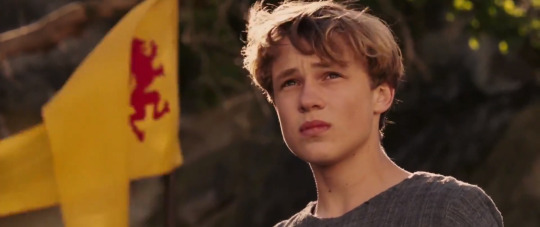
"We used to have fun together, didn't we?" As the second oldest sibling and eldest daughter, Susan attempts to make up for the areas where Peter is lacking, an act that is self-imposed as she is not given the same responsibilities as her brother. At the train station, her mother asks her to be a "big girl" but not a 'woman' and doesn't ask Susan to look after everyone as she does Peter. Susan isn't asked but she tries, anyway, to be more grown-up and responsible for the sake of her siblings, particularly during those times when Peter isn't. When he's distracted by soldiers at the station, Susan organises their tickets and smiles politely at the collector; during their first night at the Professor's house, she notices that Lucy is upset and must point it out to Peter; she orders Edmund to bed and Lucy to stop talking about her trip to Narnia, "That's enough, Lucy!" and admonishes Peter for not doing a good enough job with their younger siblings. She delivers phrases and mannerisms that she has likely picked up from her mother - "We could all use the fresh air" - and, in true adult fashion, manages to invent a game that is even more boring than their actual boredom. Like Edmund, Susan wants to separate herself from her childhood and be an adult but out of a desire to be helpful, but, she is also like Peter in that, whether consciously or not, she latches onto childish outlets.She, like Peter is caught between two worlds; she wants to be an adult but without taking on the larger responsibilities of adulthood - she has yet to learn that acting like an adult and being mature are two very different things. She tells the Professor why Lucy is upset because she wants to sort out the issue but also looks for an adult's help in doing so. When they arrive in Narnia, she urges them to turn around again then later uses that as an excuse to blame Peter when things go wrong, "None of this would have happened if you had just listened to me in the first place!" For want of a real adult figure, Susan expects Peter to fill this role since that is what their mother asked of him. When Lucy cries their first night at the Professor's house, Susan is the first to notice but nudges Peter to do something about it then later scolds him for failing to help Edmund without having tried to intervene herself, "Well, that was nicely handled." While Susan expects herself to act like an adult nobody else does, so, when things go wrong she is able to blame Peter who is supposed to be their stand-in adult. She maintains this attitude throughout the journey where she can be seen acting grown-up, but in small ways that she can handle. She helps Mrs. Beaver pack food for them when the others are standing around staring, urges them all to go home, comes to terms with the fantasy world by throwing logic at it (and gets teased for it), and tries to convince Peter to listen to Maughrim if it means keeping them alive. It is only when the children meet Aslan and Susan shares the responsibilty of losing Edmund that she really acts maturely. By taking on some of the responsibility, Susan does a grown-up thing and so is finally able to stop acting like one. Once she does so she is able to relax and revert back to her childhood. She plays with Lucy in the water, follows her to the Stone Table (beginning of the movie Susan wouldn't have let her sister leave the camp) and feels the loss of Aslan as much as her sister does. It is only a short amount of time, but, as soon as Susan stops trying to act like a grown-up she is able to embrace the wonder of Narnia as fully and freely as Lucy and Peter do.
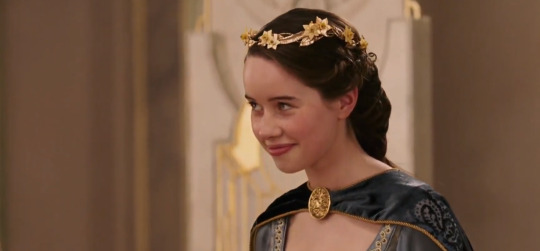
"When are you going to grow up?" Like Susan, Edmund is desperate to be seen as a grown-up, or, at least, as an equal to Peter. He frequently pushes back against his mother's insistence that Peter look after him and tries to separate himself from Lucy. However, unlike Susan who channels her desire to be an adult into keeping them safe, Edmund does the quickest and easiest thing he can do which is to be nasty to Lucy. He also tends to act rashly without considering the consequences. We can see this in the beginning when he opens the curtains during the air raid, then runs back into the house to get the photo of their father forcing Peter to run after him, nearly getting them both killed, "You're so selfish! You could have got us killed!" In Narnia, Edmund leaves his siblings behind to find the White Witch with no thought that they might follow him or that he might be putting himself and others in danger. None of which is to critcise Edmund, it is, rather, the point: Edmund, more than Peter or Susan and exactly like Lucy, is a child. It is why it's so easy for the White Witch to reel him in and, to his credit, it is also why he so easily reverts back to childhood after reuniting with his siblings. "What's done is done. There is no need to speak to Edmund about what is past." After being rescued by the Narnians, Edmund speaks privately with Aslan and although we never hear what is said between them, Edmund comes out softer around the edges, someone who has learned a lesson but has returned to what we can assume is a version of his old self. Even when he was antagonistic and reticent, Edmund showed behaviour that gave us a glimpse of the boy he likely was before the war. He and Peter stifle their laughter together when Mrs. MacReady gives out to Susan and bond again later when he teases Susan about her game, "Is it Latin for 'worst game ever invented'?" and after complaining for all of a second, he throws himself fully into the game of hide-and-seek with his siblings. After speaking with Aslan, Edmund returns to his siblings a more mature version of himself, "I've seen what the White Witch can do. And I've helped her do it. And we can't leave these people behind to suffer for it", but also one that is ready to stop fighting his older brother, "Then you'll have to lead us." The tension between Peter and Edmund plays a large part in Edmund's development; Peter is someone who angers Edmund, but also who he wants to be treated equally by. Edmund's acceptance of Peter as his older brother and leader is the clearest indication that he has accepted his role as the second youngest, allowing himself to take the lead from Peter, and when Peter doubts himself, Edmund is the one to reassure him, "Aslan believed you could. And so do I." When Peter orders Edmund to retreat from the battle, hedoesn't listen but launches himself at the White Witch distracting her from Peter. Edmund considers following Peter's order for a moment then decides against it and while his attack on the White Witch is as impulsive as running into the house during the air raid, it includes that moment's thought. Edmund has learned from his experiences and decides to do the impulsive thing anyway, this time as an act of protection endangering no one but himself, "Peter's not king yet!" As well as maturing in his thoughtfulness, Edmund returns to his childhood by embracing his siblings and his place among them. He stops teasing Susan, accedes to Peter's decision-making (when he sees that it's right) and when Lucy is the first one to run up and hug him after they've reunited, he accepts it easily.
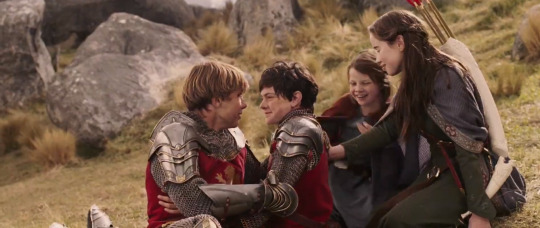
Of the four siblings, Lucy undergoes the least amount of develoment because she doesn't need to; of the fours siblings, only Lucy is unafraid to be a child. Even when she is teased and told off by her older siblings, Lucy never tries to change who she is. She cries and laughs and comforts and experiences wonder and joy with an openness that only a child could possess; she stands her ground, argues on behalf of the Narnians and calls her siblings out on their mistakes and behaviour, "Stop it! None of this is going to help Edmund!" She is Queen Lucy the Valiant because she is never afraid to be who she is, a lesson her brothers and sister each must learn during their time in Narnia. It is only fitting then, that she takes the first step into Narnia, that she, more than anyone, is tapped into its moods and intricacies. She understands that the mice chewing Aslan's ropes are doing it out of love and respect; she thinks to use the draiads to send a message to Peter and Edmund during the battle, and notices, when everyone else is celebrating, that Aslan looks sad after his liason with the White Witch. From the moment she steps foot in it, Lucy loves Narnia and Narnia loves her back and her belief - in herself, in her siblings, in Narnia - is continuously rewarded. Lucy doesn't look for proof but she accepts it with open arms when it appears in front of her and so she is most at ease with herself and the world around her.
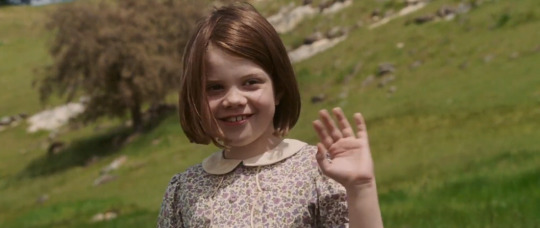
The Chronicles of Narnia is, ultimately, about faith; faith in yourself, in those around you, in Aslan, and in Narnia itself. Lucy is strong in her faith and this carries her throughout all of her adventures in Narnia; Peter waivers in his faith in himself and must work hard to develop it; Edmund tries to separate himself from his faith but comes back to it with an even stronger conviction; Susan's faith means so much to her that it causes her pain and so she tries to forget it. The Lion, The Witch and The Wardrobe might be Christian in nature, but its themes are universal. Lewis does not want everyone to find inner peace in God and Christianity, but he does want us to find it in something and the series advocates for faith in general as a path toward inner peace and decency. How that faith manifests is unimportant - Peter has an easy time believing in Aslan but not in his own capabilities and Lucy believes in Father Christmas as much as she does Aslan. The Lion, The Witch and The Wardrobe symbolises this finding of peace in a connection to childhood, but it is a peace that can be found anywhere - in religion, in other people, in trees, in fairy tales or Santa Clause. It doesn't matter where or how you find your find your childhood, only that you open yourself up to the opportunity to do so, "Try me!"
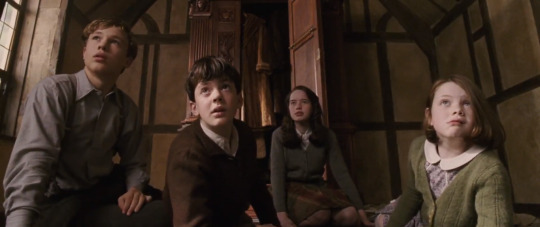
#the chronicles of narnia#the lion the witch and the wardrobe#cs lewis#narnia#peter pevensie#susan pevensie#edmund pevensie#lucy pevensie#my lucy section was longer#but then my laptop crashed#and so did my brain#i do stand by the statement that she has the least amount of learning to do because she's way ahead of everyone else#which is partly why I didn't have as much to say about her#'no notes' as it were#essays#film analysis#movie analysis#andrew adamson#this movie is so good
24 notes
·
View notes
Text
A rant on Carmen Sandiego's S1 E1 Cold Open (Spoilers)
A cold open refers to jumping into a story before opening credits or title
Another analysis rant! This time where it all began. So I know a lot of people have praised the first 2 pilot episodes but I like to put my own take on why the show's cold open worked so well (In my opinion).
According to the internet, a cold open needs to:
Engage the Audience Quickly: It should immediately capture interest, whether through humor, drama, action, or suspense.
Set the Tone: It establishes the emotional or thematic mood for the rest of the episode or film (e.g., funny, intense, mysterious).
Introduce Key Themes or Plotlines: Sometimes, a cold open hints at a story arc or central conflict that will unfold, but it should never give away too much.
Provide a Hook: Leave the audience wanting to see what happens next. It can either resolve quickly or leave a lingering question.
Be Short and Sweet: A cold open is typically brief, setting up just enough to intrigue without overloading the audience.
Here's how I think they did it:
The show starts by showing off its art style throughout the cold open which hooks art enthusiasts. Some of the more visual stunning shots used in reviews I've seen can be traced to this episode.
It introduces the plot of Carmen being a master thief chased by the police without giving away too much more. This is done from descriptions from Jules and Devineaux and brief images of Carmen which make her reveal all the more stunning.
It hooks older audiences given that it makes references to her previous incarnations such as the fact that she "leaves clues and wears bold colors".
The introduction of the characters are also very well done:
Chase is presented as an overconfident "professional" from how he says "the game is over" and how he talks down to Jules.
Jules is presented as a soft spoken, intelligent "amateur" based on the fact that she's only been at Interpol "for a fortnight" and her small info history dump about Poitiers... (That is not an attack - I genuinely like history facts I SWEAR!)
Carmen is presented as a suave, cultured and (dare I say) attractive thief in the first shot she is introduced in. Her introduction still gives me chills with the way the camera moves and the music builds up.
5. The cold open sets the tone which balances the action and humor. This can be seen in the chase between Devineax and Carmen.
Alright here is the part where I rant and try to analyse the opening (feel free to add your analysis as well)
As mentioned earlier, Carmen's introduction is just perfect... and probably gave some people gay awakenings... from what I've heard.
When she's robbing the museum, we see how deadly her job is... yet fun!
Chase's quote of " Why must the elevator date back two centuries? WAS NO ONE EVER IN A HURRY BACK THEN!?!?" not only gives insight into his rush before thinking personality but also is one of the funniest line deliveries in the show and is underrated.
Just as Carmen is about to steal the diamond, she is caught off guard by her dolls. On first watch the viewer is drawn in by its mystery but on rewatch, knowing her backstory - I realised the shots used for her dolls and the diamond might have symbolism.
The diamond is bright and obvious which might make the viewer take as her target and overall goal.
The dolls however are in the dark - first time viewer would take it as mystery. Once you know her dolls are her connection to her past, the dolls in the shadows could represent how Carmen was "in the dark" about her past. She didn't know anything about her dad or deeper connection to VILE.
The chase scene between Carmen and Devineaux does a good job at further establishing characters and tone of the show. Throughout the chase, Carmen is presented as experienced and swift yet likes to taunt her enemies while Chase is shown as determined and... well, less experienced when it comes to super thieves.
The chase scene also uses music, which can be seen in depending who the camera is focused on, to present characters (any music professionals - please help. I am not one):
Carmen - quite elegant with plucky melody presenting accuracy and experience.
Chase - Sounds deep. Maybe a little saxophone and deep bass? Presents grit?
The chase ends with Carmen's "Au revoir" highlighting her taunting and being cultured. It also ends with Devineaux falling to his car - setting off my favorite running gag of car destruction and reminding the viewers that this show has cartoon logic.
I was writing an analysis on the entire 2 episode pilot at one point but I got busy. I tried getting back into it only to realise the work load. So I decided to take what I've got for the opening. Do with that as you will.
Do I think the opening is perfect? Well yes but actually no - I'm aware there are flaws. Please point them out.
Did I write this at night? Yes. Hence sloppy writing.
Did I forget to greet you happy New Year? Actually yeah... HAPPY NEW YEAR! And remember to always protect the face!
16 notes
·
View notes
Text





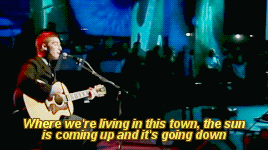
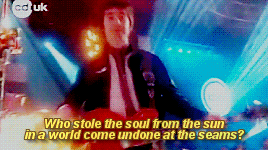
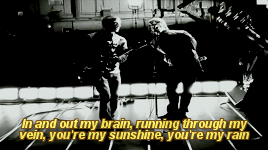

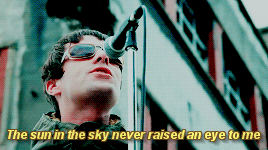

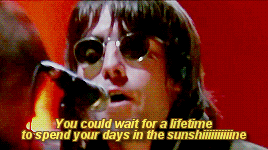


thinking of what might have been and what the future says rnrs, raw, wfl?, bhn, ss, ltbl, tht, mg, dykwim?, sms, c&a, sa
+1

#council skies#rock 'n' roll star#be here now#who feels love?#round are way#sad song#let there be love#the hindu times#morning glory#d'you know what i mean?#some might say#cigarettes & alcohol#slide away#things#lyric analysis#2023#nghfb#cs album#i just think that line 'hiding what we find behind the sun' is so loaded#it's got everything...discoveries and secrets and sunshine#also this isn't meant to be an exhaustive list of all the sun references#because i know some of the big ones aren't here#i tried to keep it to the handful that i thought would work best for the set
39 notes
·
View notes
Text
Chat Noir is Adrien
That seems pretty obvious, they are literally the same person. Honestly, I don’t know if this was ever a point of contention in the fandom because I’ve never been, like, properly in the fandom but I remembered hearing about this a while ago and thought I talk about it in regard to my Rewrite :)
Adrien and Chat Noir are the same person, again, obviously, but they act very differently from one another, particularly in the show. Adrien is always polite and carefully spoken while Chat Noir says anything and everything. They act like different people, but they aren’t.
I think every person goes through an identity crisis in their life. Mine has been ongoing but it was pretty bad a few years ago. I felt very lonely because I didn’t have anyone who knew me, but that begged the question, Who am I?
Depending on the situation I act differently. I make different jokes around family than I do around friends. I speak and act differently at work than I do in my house and at school I behave entirely differently, but all of these are me.
At school, I am naturally quieter and more withdrawn. It would be unnatural, not authentic if I were to be super outgoing and sociable. That is me.
But with friends, I make crass jokes and laugh about dumb shit. I instigate conversations and go out of my way to spend time with them. That is also me.
Neither of these versions of me are facades, they are all me, but reacting to different situations. I don’t particularly enjoy school so I go into low power mode, but when I do happen to enjoy a topic or have a friend in the same class then I am more invested. I am fluid and changing and all different “versions” of me are still me.
To apply this to a fictional teenage superhero, Adrien acts a certain way at school, and as time progresses he gets more comfortable in the “version” of him he is at school and settles into it. When he transforms and becomes Chat Noir, another “version” of him surfaces. One isn’t more valid or authentic than another; Adrien is simply adapting to his circumstances.
One minor issue (yes it’s only minor this time around) I have with the show is that they never show bleedover between the different “versions” of Adrien. I may be wrong, but I believe they do with Marinette early on where they show her gain confidence as Ladybug and that transfers over to her as Marinette, but they never do anything like that with Adrien.
Going back to my example from before, in class, I am typically quieter and more withdrawn, but if I have a friend in that class or was just talking to my friends before I went to class, that may change and I end up being more talkative and involved. If something bad happens in my personal life, I will be unfocused and tired in class. These different “versions” of myself are all connected and they bleed together, they impact one another.
As a whole, I think the show should look into this more. Or, if they don’t want to dive into that, they just ignore it entirely, but a lot of the show’s main struggles are with the heroes, Marinette in particular, dealing with having “two lives” that are at odds with each other. It would make that struggle more interesting if they dove into how they personally struggle with this outside of just being stressed, you know?
In my rewrite, I’m not planning on diving into this in great detail, but I want to make sure that the connection is present. I see how changes in one “version” of a character impact the others.
When Adrien gets his miraculous and becomes Chat Noir, he suddenly has unlimited freedom and gets to experience something new. As a result, he starts to discover himself more in this newfound freedom and realizes he likes making jokes and goofing off but that he likes to do so because it makes the people around him smile.
As Adrien, he makes the people around him smile not primarily through jokes, but by acts of service. He spends time with them and connects with them on an emotional level to support them. Adrien still makes jokes, but they aren’t his go-to as it is for Chat. Chat likes to connect emotionally with Ladybug, but can’t fully because of their secret identities.
Adrien and Chat Noir are the same person but just put names to that same person in different circumstances.
#Miraculous Ladybug#miraculous ladybug au#miraculius ladybug rewrite#miraculous ladybug analysis#mlb#mlb au#mlb rewrite#mlb analysis#miraculous ladybug critique#mlb critical#ml#ml au#ml analysis#mlb:ar#mlb:ar misc#mlb:ar misc-cs#adrien#adrien agreste#chat noir#cat noir
32 notes
·
View notes
Text
gray's return in the show and how it defines gray as a truly morally gray character

i just gotta ramble more abt this scene, with it being one of my favorite scenes in the show. but really i just wanna talk abt how this scene encapsulates gray's ... grayness... of the moral variety
especially since it is done so effectively since, like i mentioned in other posts, our screen time with actual gray and not graham or whatever is limited.
this scene sees the return of gray in the plot, picking up directly where we leave off from all the way back in episode 2
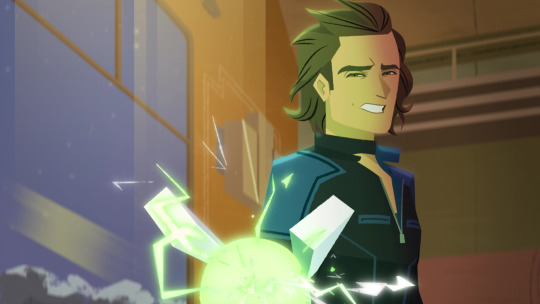
Bye-bye, Black Sheep...
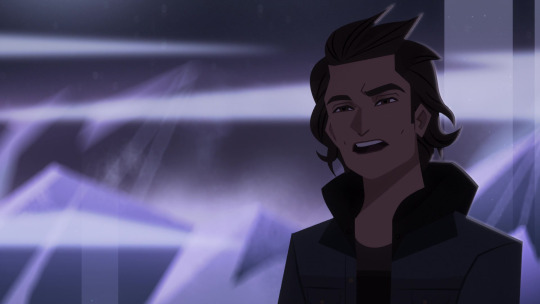
I assume you prefer I continue to call you "Carmen"?
as i stated previously on other posts, because of the silly brainwashing plot, much of graham scenes can be thrown out. in a sense, it's the writers' way to put a big old pause on his character
and these are only one of the two conversations carmen and gray have in current day as themselves -- with no mind wiping or brainwashing (not including flashback cuz the actual issues of the relationship that need to be addressed havent been established yet)
so resuming directly right where we left off with gray trying to kill carmen, we return back to gray trying to kill carmen :D
but this time he did recongize carmen's name, alluding to his change ... even tho he is waving his electric stick around -- mirroring their last encounter in paris
side tangent: something i, additionally, love about this scene is just how it is blunt and honest. much of carmen sandiego's drama/conflict is built of misunderstanding and misdirection and mistrust of the characters. Which while, yes, i am eating up, but unfortuntely can cause many characters relationships to be burdened with a lot of things that can be easily cleared up with a talk. gray for once just bluntly takes a stance.
something that i do like is that in their only two scenes with each other as themselves, carmen (the pilot flashbacks) and gray (this scene) open up so fast with one another. there's never any miscommunication between them during these scenes .... well until vile barges into the conversation....
ANYWAY here we get revealed gray's full perception of himself and his goals very explicitly, especially since his memories and alliances was the biggest question over the viewers' head for most of the show
here gray explains that he believes that he is not a good person, someone incapable of change.
from his perspective, the only way he was able to be a "good" person was when he was brainwashed. and he had just had however long with his chats with maelstrom emphasizing that he has always been a bad person by nature. with the knowledge vile will forever have full control over him -- either as a vile operative or as a mindwiped civillian -- gray essentially accepts his fate as a bad person, because at the very least he is himself.
carmen may have gotten away from vile, but he is told by maelstrom it is due to her being a naturally good person. because his own perception of himself is as somebody who is incapable of good, he will never be able to leave vile now
and carmen is right there in front of him. it was his hesistance that landed him into this debacle, and with maelstrom and bellum both just past the door and carmen alone, gray has every chance to right his wrong.
but he doesnt. because he realizes that the very least he can make the choice of is never hurting carmen. as i stated in other posts, gray's main motive is to be free from any standard that could get in between him and his success. but his want for this freedom ironically got him trapped within following vile's orders. he had been so caught up in following vile that he had lost sight of himself and what he cares about.
so now he explains to carmen his absolute refusal to hurt her again, begging her to give up in stopping vile
selfish and selfless
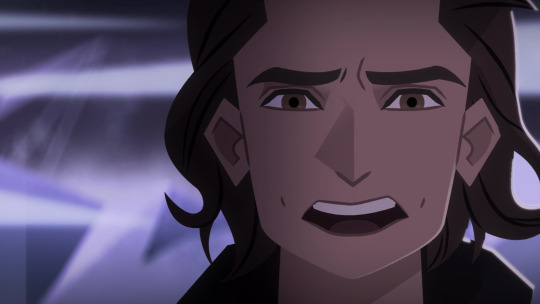
But I'm begging you, give up trying to stop us, because I don't ever want to be put in a position to hurt you again.
gray's plea to carmen here is so perfectly two-sided
he is acting out selflessly in not allowing his alliances against carmen blind him. i mean that is what he fucked up last time in the train, where it was clear gray wanted to spare carmen - with giving her time to share her side of the story and providing the offer - put unwilling to stand against his mission. like an actual human being, gray acknowledges his mistake and is trying to amend it by stating clearly that he cares abt carmen.
he, in essence, is apologizing for trying to harm carmen by expressing his major regret. moreover, he acknowledges their chat in the pilot, accepting carmen will not return to vile. it stems likely from the ink blot scene earlier, where maelstrom speaks about nature, making a distinction between vile, and by extension, gray's, and carmen's morals. he is finally reconciling that he and carmen will not be on the same side, no matter how much he wants it to be otherwise.
it can also be viewed as a sense of wanting to protect carmen. because he feels so small compared to vile, he barely can ponder how anyone can actually succeed in going against them. i mean they brainwashed him and easily gave and took away his civilian life. in his eyes, carmen staying far from vile is the only way she could be safe
however, viewing it from another perspective shows gray's selfishness in his plea. when he speaks about never wanting to be put in a position to hurt carmen again, he kinda places such a responsibility on carmen, not recongizing he himself is capable of changing that.
Essentially saying "hey quit while you're ahead so you don't gotta make me feel guilty when doing crime" while ignoring that he is making the choice join vile
It kinda stems from his lack of faith in carmen or his own cowardice against vile or a combination of both. What may just be the only way he can protect to protect carmen comes off in his own lack of faith in her ability. as i mentioned earlier, this practically is his own resignation to his fate that vile cannot be fought against. he took his own defeat as the only way to be safe, refusing to believe carmen can successfully fight them.
while he was able to get past the hurdle of accepting carmen changing and no longer standing alongside him, he cant seem to understand his own responsibilty in this.
he's being selfish by demanding a change in carmen's behavior while he continue along with his own desires. While yes, i did just detail the various factors that led to him to such a conclusion, the window was LITERALLY OPEN for him to leave
following carmen blowing up the facility and rejecting gray's demand -- SHE IS SO REAL FOR THAT I LOVE HER SM IN THIS EP -- the wall LITERALLY IS OPEN FOR TO LEAVE CARMEN WITH
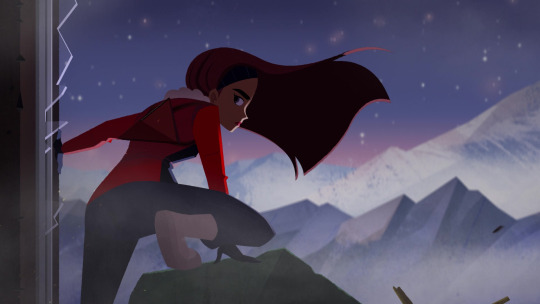
Goodbye, Gray
Idk how intentional this is, but the framing shows carmen literally, by her own will, forcing an opening for herself out of vile (both figuratively in the past and literally right now lol) while gray watches on idly, too scared to leave the grasp of vile but just watching on.
and his cowardice is followed through in the finale, with after months of idly watching carmen slip deeper into evil by the brainwashing, he actually takes actions against vile by actively choosing to work with acme, abandoning tigress, and being the one to land the memory recovery thing on her.
it is what makes gray such a stand out character in this show, admist his frustrating back-and-forth and selfishness and sometimes wasted writing. he keeps making a mistake but proceeds to fix it right after. his growth into a better person requires him to make these mistakes, because unlike carmen and most people in the show on the side of good, gray doesn't work on any moral compass. he is not actively evil and wishing to inflict harm and conflict like paper star or vile facilty, nor is he driven by morals such as team red and julia. he is driven by whatever he selfishly cares abt. and from what we see of him both in the pilot and this ep, he makes as many mistakes as he does have slivers of good actions
basically gray is an interesting character cuz he literally fucks up his personal goals, but he makes an earnest attempt to make it better lol
#carmen sandiego 2019#graham calloway#cs crackle#carmen sandiego#character analysis#i tried rip#he was getting too silly and then had to have a fake out death#character rambles#barely revised this lol
90 notes
·
View notes
Text
Some Things Should Be Left in the Past
I'm trying to distract myself from the hellscape that is my home country, so let's talk about Narnia.
I see things every so often in my Google suggested articles about the Greta Gerwig adaptation of Narnia and if fans think it's a good or a bad thing, what they'd like to see or not, and if more of the series will be adapted this time around.
Personally, I'm indifferent. I grew up with the live action (I guess from Disney?) film version and it'll always have a special place in my heart. (And Skandar Keynes will forever be my first celebrity crush). Before that, I had no idea there was another adaptation (BBC TV series apparently). So I really don't care either way.
The more interesting question to me is if more of the series will be adapted. The BBC series adapted The Lion, The Witch, and The Wardrobe; Prince Caspian; Voyage of the Dawn Treader; and the Silver Chair. The Disney/Walden Media adaptations covered the same books minus the Silver Chair. As a child, I had a few picture book adaptations of only The Lion, The Witch, and the Wardrobe. And I think, if you asked the average person (not a fan of the series) what they know about the series, they would most likely be most familiar with LWW because it tends to stand alone.
Okay where I'm going with this now: I don't think any of the other stories beyond the three that feature the Pevensie's adventures in Narnia will be adapted because the rest of the series just kind of sucks.
Disclaimer: From here on out, there WILL be spoilers for the entire seven book series. I'm analyzing the plot and sharing my opinions on it. If you don't want anything spoiled, you should probably stop here.
Still here? Okay!
LWW will forever be one of my favorite stories. And it's because I loved the story so much I decided to read the entire series. But I found the rest of it (again, outside of the class 3) to be disappointing. And I think there are a few reasons for that.
LWW is the strongest book in the series because it was the first. It was written as a children's fairy tale. The book is even dedicated to C. S. Lewis' goddaughter, Lucy (I believe Lucy Pevensie is named after his goddaughter as well). And the religious connections, the fact that its a Christ-like tale is blatantly obvious. But the story works. The metaphor is clearly there, but you can enjoy it without being religious. Because here are these children who leave behind the tragedies of World War II and find themselves in a magical land, one they quickly become royalty in.
I honestly think from there though, Lewis sank too hard into the religious metaphor to make it believable. As a stand alone book, LWW is the story of Christ. But the more he adds on, the more it becomes apparent that this isn't just a metaphor but some type of parallel universe. From LWW, we get to Prince Caspian where the oldest two are now told they cannot return because they're too old. Then comes Voyage of the Dawn Treader where Lucy and Edmund are finally told the same thing; that they are too old. And at some point, Lucy expresses how much she will miss Aslan if she can't come back.
And now, its no longer a metaphor. Because Aslan tells Edmund and Lucy that he does exist in our world, but he goes by a different name. At this point, Aslan is no longer a metaphor for the Christ story, he expresses that he IS Jesus.
From there, the series takes a weird turn as it attempts to fill in gaps in the established lore. The Silver Chair is still chronological but I honestly don't remember much of it because by this point, I didn't care. I was just trying to earn my AR points. But after SC, the books aren't chronological. The Horse and His Boy takes place in Narnia during the Pevensie monarchy but this book isn't about them--they only appear briefly because of a plot against their country of Narnia. The Magician's Nephew finally establishes how Narnia came to be and sets up where the Wardrobe comes from that will eventually get the Pevensies to Narnia. And then the Last Battle sees the world of Narnia come to an end.
So, problem number 1: Lewis has established the four Pevensies as the protagonists, the heroes of the series. And by book three, we've cut out two and added a new one. While spin offs are lovely and expansions of the world, trying to expand on the same plot with a new cast of characters doesn't tend to sit well. This is why I think the SC isn't memorable. The Pevensies have no place in it; only their cousin who's just been introduced in the book prior. I don't care about the cousin.
Problem number 2: It's great to have an expansion to the lore of a fictional world but the following novels don't really do that. The closest thing to an expansion of the lore of Narnia is THaHB. But again, the Pevensies aren't the center of the plot. Introducing a new character in a familiar world without focusing on the familiar characters takes away from the enjoyment. The Pevensies are RIGHT THERE, but I'm following the story line of some random kid.
Out of the last four books, the most memorable to me is the Magician's Nephew because there is a lot of world jumping. In this book, we get to see the end of one world, the establishment of a new one (Narnia) and we get to see where some of the most memorable elements of LWW come from (the lamp post, the wardrobe, the professor, etc).
The Last Battle? I hate it. It shouldn't exist. In my [not so humble] opinion, LB ruins the series. And I've seen analyses into this that are fascinating takes, (that the train crash could make sense in a historical context; that the problem with Susan is she demonstrates that sometimes remaining alive [alone] is worse than death) but I think this just attempts to fix problems that are unfixable.
There is so much more I could say on the problems with the series but I'll save that for now. I'll conclude this accidental essay by saying there is a reason the book to screen adaptations have occurred as they have. The stories we know and love, those that persist and stand the test of time, do so because they remain relatable, they give us a glimpse into times past, and they have cultural significance. The Lion, the Witch, and the Wardrobe does show up on lists of Classic literature (it was required reading for me as a sixth grader). The rest do not. And there is nothing wrong with leaving the other books in a series behind; Lewis' Narnia would not be the first nor the last to have one story persist while the rest fall into a bit of obscurity. And that's okay.
If I can find them, I may go watch the currently available adaptations, both the BBC series and the films (though, again, I'm partial to the films). As Greta Gerwig takes up the mantle of readapting the series, of course LWW will be there and perhaps PC and VotDT as well. I think it would be fun to see the creation of the world we know and love with an adaption of the Magician's Nephew. But I think the rest should stay in the past.
#chronicles of narnia#narnia#spoilers#cs lewis#the lion the witch and the wardrobe#prince caspian#voyage of the dawn treader#the silver chair#the horse and his boy#the magicians nephew#the last battle#essay#literary analysis#literary criticism#classic literature#fantasy#wwii era#religion#christian imagery#peter pevensie#susan pevensie#edmund pevensie#lucy pevensie#diggory kirk#eustance scrubb#adaptations#disney film#walden media#bbc#my thoughts
12 notes
·
View notes
Text
liya has me back on my bullshit again. here are my definitive chase thoughts for real this time
no formatting bc i'm not liya (whose writing you can read @dulcesiabits <3 but let's be real if you're reading this post it's probably bc she reblogged it from me. she has way more followers)
spoilers for the short stories and the q&a under the cut
What strikes me the most about Chase's character, more than anything to do with the comparatively superficial stuff he does on the daily, is his immoderation with love—and I think his whole arc and everything he does essentially revolves around this axiom.
People have noticed the similarities between Red and Chase, and I agree with them! Former fuckboy, current fuckboy, and all of their social grace and charisma—I see the vision. However, crucially, while Liefred was slutting it up in the Circle and figuring out what love truly meant to him, Chase was being ordered to kill people by a mob boss. Red had no shortage of love in his life, while Chase was repeatedly denied love to a frankly astonishing degree. It's no surprise, then, that he would seek the cloth mother. His need for love is a yawning pit inside him, because as everyone knows, nothing is sweeter than that which is scarce.
Back to his backstory—enter Saya. lmao
I think Saya did like Chase in some way, but she definitely saw his need for love as an annoyance, as a flaw (let's put a pin in this). And so when he exceeded expectations at his place of employment 🫡 for her, and for his new family in the Thieves Guild, well. We know she resented him for how much credit he got compared to her, but I also felt like she was almost...disgusted by how happy he was. For him to have her life and then be better at thieving is one thing, but to then find so much joy in it when she's so resentful would have been the icing on the cake. I don't think she would've been as angry or careless as she was with him if he was as miserable as she was—but he wasn't. he was so happy because he finally found love—and this foolish, giddy happiness made him easy to look down on, easy to manipulate, and easier to ultimately betray.
-
Post-betrayal, Chase puts up the walls we see at the beginning of the game. He becomes even more slippery, insouciant, hard to pin down—and yet. And yet.


It's not like he stops yearning for love/aching to fill the hole inside (as Contrapoints put it in her video "Twilight"—I highly recommend giving it a watch). It's more that he's now aware of the loss of self-possession that love can cause, especially for him.
And yet!! That loss of self-possession, the yawning, love-starved hole inside him, that bone-deep need for love that he's never been any good at denying, is never going to go away for him. Think of the things Lena has said during Q&A. In his happy romance ending, he's "king simp". He would be down for matching tattoos and such things as these. Matching tattoos!!! MATCHING TATTOOS????? These are not the signs of a rational mind, are you INSANE?????
And this is his good ending!!! Even in this ideal arc, the compulsion he feels towards love does not loosen its grip on him. Rather, it's the people around him who recognize this in him and treat it with the care it deserves! (Now let's unpin the thought from earlier.) This is the crucial difference between Saya and a chasemancer MC. Both of them see this yearning within him, but where one sees it as a flaw to be stomped out or taken advantage of, the other recognizes it, understands it, and protects it.
Love will always make Chase vulnerable, but in his arc, he will learn that it doesn't have to make him weak.
#these are thoughts from before i went to bed on 5/30/2024 that i sent in my discord server w liya teehee#she is also doing a chase analysis and i am on peer review for that so...look forward to it!!!!!#shepherds of haven#chase trinaeste#chase#shoh#i did cs so i didnt have like a thesis or anything and i feel like i'll be repenting for that my entire life
44 notes
·
View notes
Text
this might perhaps be a controversial opinion (idk and idc to know) but i could so see (modern?) tom enjoying psychology
#ˋˏ ❀ — mimi speaks 🤗 ˎˊ#specifically statistical analysis/research design bc he's actually psychotic like that#but yeah idk i could see him being a psych major for some reason#(this is not projection ❌)#i feel like he'd be skeptic about it at first and then tries it and he's like “nah this is lowkey my vibe”#psychology lowkey combines so many fields like bio + chem + maths + cs + english...#actually it might be the research part of psych being why i think he'd fit it#hmm#anyway this is me procrastinating bc i fucking hate statistics and my exam is tmrw#save me tutor! tom#tom riddle#tom riddle headcanon#harry potter headcanon
15 notes
·
View notes